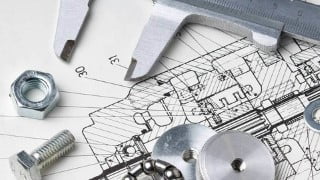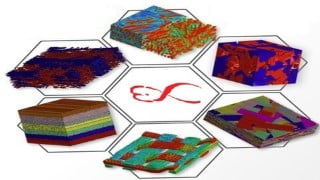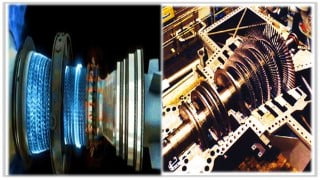Mechanical Engineering Exam Questions Practice Test
Learn the principles of mechanical engineering, from design to operation of machinery. This course is perfect for those in HVAC, oil and gas, automotive, power, and industrial industries. Suitable for anyone curious about how things work and looking to excel in the field.
Mechanical engineering is an engineering branch that combines engineering physics and mathematics principles with materials science, to design, analyze, manufacture, and maintain mechanical systems. It is one of the oldest and broadest of the engineering branches.
The mechanical engineering field requires an understanding of core areas including mechanics, dynamics, thermodynamics, materials science, structural analysis, and electricity. In addition to these core principles, mechanical engineers use tools such as computer-aided design (CAD), computer-aided manufacturing (CAM), and product lifecycle management to design and analyze manufacturing plants, industrial equipment and machinery, heating and cooling systems, transport systems, aircraft, watercraft, robotics, medical devices, weapons, and others. It is the branch of engineering that involves the design, production, and operation of machinery.
Mechanical engineering emerged as a field during the Industrial Revolution in Europe in the 18th century; however, its development can be traced back several thousand years around the world. In the 19th century, developments in physics led to the development of mechanical engineering science. The field has continually evolved to incorporate advancements; today mechanical engineers are pursuing developments in such areas as composites, mechatronics, and nanotechnology. It also overlaps with aerospace engineering, metallurgical engineering, civil engineering, structural engineering, electrical engineering, manufacturing engineering, chemical engineering, industrial engineering, and other engineering disciplines to varying amounts. Mechanical engineers may also work in the field of biomedical engineering, specifically with biomechanics, transport phenomena, biomechatronics, bionanotechnology, and modeling of biological systems.
These solved MCQs are useful for campus placement of Mechanical Engineering freshers, university exams, job interviews, viva, and competitive.
Two and Four Stroke Engines Work
Boilers Work
Electrical Transformers Work
Valves Work (Ball, Gate, Globe etc.)
Primary Clarifiers Work
Power Generation Machinery Works (Renewable and Non-Renewable Energy)
HVAC machinery works.
Oil and Gas machinery works.
If you are working in the following industries, you will get a big benefit from this course:
HVAC
Oil and Gas
Chemical Engineering
Power Engineering
Mechanical Engineering
Automotive Engineering
Power Generation
Who this course is for:
Anyone who is curious about how things work.
Anyone who loves to learn.
Anyone who enjoys the gift of knowledge.
Anyone involved with any engineering-related discipline (oil and gas, HVAC, automotive, marine, power, industrial etc.).
Who this course is for:
- Who wants to seat for Mechanical Engineering Exam
User Reviews
Be the first to review “Mechanical Engineering Exam Questions Practice Test”
You must be logged in to post a review.







There are no reviews yet.